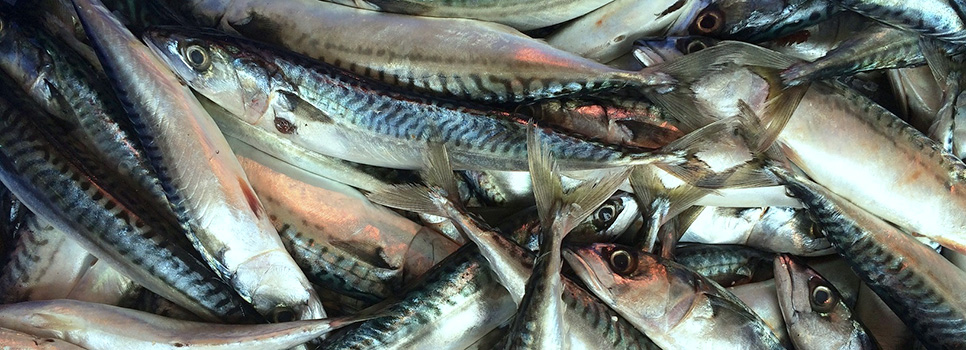FROM FISHING BOAT TO TABLE: THE KEY ELEMENTS TO PREVENT HISTAMINE INTOXICATION

Data from eight years of food surveillance enable researchers to portray the situation of scombroid syndrome, a food poisoning strongly linked to quality and conservation of fish
Itching all over the body, headache, nausea, vomiting and abdominal cramps. Symptoms that, when appearing after eating fish, should lead to suspect the so-called "scombroid syndrome", a food poisoning linked to the presence of histamine in food. A research by the Istituto Zooprofilattico dell’Abruzzo e del Molise (IZSAM), Italy, examined data collected during eight years of safety surveillance in the Abruzzo region, highlighting the importance of correct fish processing and conservation procedures, from the fishing net to the market. But that's not all: a lot can be done at home.
Histamine, a substance naturally occurring in the body, plays an important role in mediating immune and inflammatory processes. In some cases, as people suffering from allergies know well, it can contribute to reactions such as asthma, hives or rhinitis, even in severe form. But this molecule can also be present in some foods and, if the dose is excessive, it may cause symptoms very similar to a strong allergic reaction.
Although various foods subjected to microbial fermentation (such as fermented cheeses, wine or beer) may contain histamine, cases of intoxication are mainly linked to fish consumption. Histamine is not present in live fish, but, once they are caught, some bacteria begin immediately to degrade the amino acid histidine, of which tuna, mackerel, sardines and anchovies are rich. The result is the formation of histamine that, if fish is incorrectly stored, can reach potentially dangerous levels.
"Our research - says Dr. Loredana Annunziata, Bromatology and Residues Department of IZSAM, first author of the scientific work published in the journal Food Control - examined samples collected in the Abruzzo region from 2013 to 2020. The samples came from both ordinary institutional checks carried out by the Local Health Service on the marketed fish and as a result of reports from citizens, in some cases related to an intoxication. Of course, if histamine contents exceeded the limits established by European legislation, all the control and tracing procedures were quickly established".
These essential activities represent also an important help for producers and for the distribution chain. In fact, quality of raw materials, maintenance of the cold chain and observance of good hygiene practices during the transformation processes are pivotal for the control of histamine formation, but so is the attention of consumers, as Annunziata underlines: "A strong surveillance strategy on the products on sale is a tool in which Italy is among the best in Europe. In addition to institutional controls, this makes it possible to support companies in implementing adequate and constantly updated safety procedures. At the same time, our research shows that consumers can do a lot to prevent formation of histamine in fish after they purchased it. Two are the keys: time and temperature. In the case of frozen fish, we must emphasize that the degradation of histidine into histamine can reactivate very quickly. For this reason, fish should be defrosted by immersing it in cold water, not at room temperature. And let's not forget that histamine is a thermostable molecule: once it is formed it will not be destroyed by cooking".

- Loredana Annunziata
Annunziata, L., Schirone, M., Campana, G., De Massis, M. R., Scortichini, G., & Visciano, P. Histamine in fish and fish products: An 8-year survey. Follow up and official control activities in the Abruzzo region (Central Italy). Food Control, 2022, 133, 108651.
Istituto Zooprofilattico Sperimentale
dell'Abruzzo e del Molise "G. Caporale"
Campo Boario | 64100 TERAMO | ITALIA
Telefono 0039.0861.3321 | Fax 0039.0861.332251
e-mail: archivioeprotocollo@izs.it
Posta elettronica certificata: protocollo@pec.izs.it
Partita IVA: 00060330677
Codice Fiscale: 80006470670


